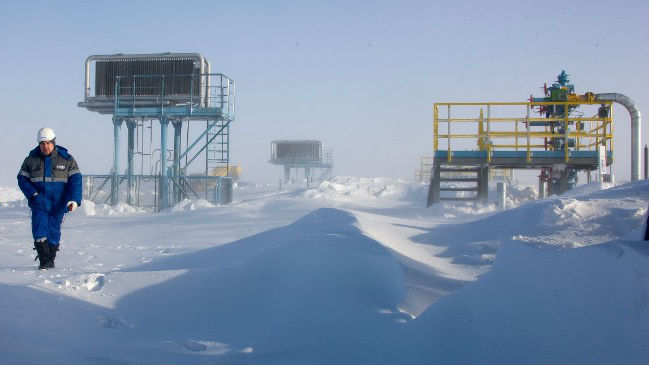U.S. Expands Russian Sanctions

The U.S. Department of the Treasury has expanded the list of Russian companies to be included in Crimean sanctions to include over 30 more individuals or entities including Gazprom subsidiaries and a number of Russian shipyards and logistics groups.
Announced on September 1, the new sanctions have been established in order to counter attempts to circumvent the existing sanctions.
The sanctions aim to foster a diplomatic resolution to the conflict in Ukraine and are expected to be in force until Russia fully implements its commitments under the Minsk agreements, including a comprehensive cease fire, the withdrawal of all weapons and military personnel, and the restoration of Ukraine’s control over its side of the internationally recognized border.
“Russia continues to provoke instability in eastern Ukraine despite its Minsk commitments,” said the Treasury’s Office of Foreign Assets Control (OFAC) Acting Director, John E. Smith. “Treasury stands with our partners in condemning Russia’s violation of international law, and we will continue to sanction those who threaten Ukraine’s peace, security and sovereignty.”
The sanctions include:
• The Zaliv yard in Kerch, Crimea, was formed after militants forcibly seized the shipyard from its previous owners in August 2014. It holds resident status in the so-called Republic of Crimea’s free economic zone and a license from the Russian government to develop military equipment.
• The Sovfracht-Sovmortrans Group is a Russian shipping and logistics company comprised of several companies, including Sovfracht Managing Company LLC, OJSC Sovfracht, CJSC Sovmortrans, LLC Koksokhimtrans, and SMT-K, a unit of the group registered in Crimea. SMT-K, an abbreviation for Sovmortrans-Crimea, has offices in Simferopol and Kerch, Crimea, and is the operator for a ferry line between the previously designated Port of Kerch in Crimea and Kavkaz in Russia.
• LLC Koksokhimtrans is the registered operator and manager of two vessels that have served as ferries between Crimea and Russia. Sovfracht Managing Company LLC has oversight over OJSC Sovfracht and CJSC Sovmortrans. OJSC Sovfracht is the flagship company of the Sovfracht-Sovmortrans Group and specializes in transporting of general cargo, while CJSC Sovmortrans specializes in container shipping.
• The Morye shipyard, located in Feodosia, Crimea, has increased its capacity to construct military vessels and began constructing a guided missile ship for the Russian Navy in May 2016.
• The Zvezdochka ship repair yard performs maintenance work on ships and submarines and is located in Severodvinsk, Russia. It has a branch in Sevastopol, Crimea that performs repairs and maintenance work on Russian naval vessels.
• A number of subsidiaries of Bank of Moscow and Gazprombank are 50 percent or more owned by their respective parent entities, all of which were previously sanctioned in July 2014.
• A number of subsidiaries of Gazprom are involved in the export of goods, services and technology in support of the Group’s exploration or production activities.
The restrictions on Gazprom and its subsidiaries prevent U.S. firms or citizens from providing goods or services supporting ts deepwater, Arctic offshore or shale oil projects, but do not apply to financial services, such as clearing transactions or providing insurance for such projects.
Gazprom claims to be largely unaffected by Western sanctions including with respect to the execution and extension of existing contracts and the conclusion of new contracts for gas supplies with foreign parties.
One of the most efficient mitigation measures is Gazprom's continuing comprehensive effort for technological independence and import substitution, said the company in a statement. Foreign equipment currently accounts for about five percent of the total procurements made by Gazprom Group. Having imposed strict limits on the procurement of non-Russian equipment, works and services, the company seeks to diversify its imports by attracting suppliers from the Customs Union, the CIS, Asia-Pacific, BRICS, etc.
Gazprom also actively furthers its cooperation with Russian suppliers. Last year, it launched a new collaboration scheme for manufacturers based on long-term contracts for the supply of import-substituting products.
